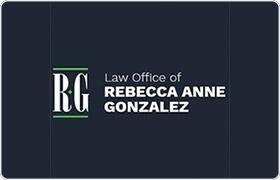Knippa Adoption Lawyer, Texas
Sponsored Law Firm
-
 x
x

Click For More Info:
-
Law Office of Rebecca Anne Gonzalez
10101 Reunion Place Suite 615 San Antonio, TX 78216» view mapDivorce & Family Law Continuing The Gonzalez Legacy
At the Law Office of Rebecca Anne Gonzalez, my goal is to make certain you feel taken care of. My team and I work hard to protect what is important to you.
800-735-1530
Not enough matches for Knippa Adoption lawyer.
Below are all Knippa Divorce & Family Law lawyers.
Rogelio Martin Munoz
Personal Injury, Consumer Bankruptcy, Criminal, Family Law, Wills
Status: In Good Standing *Status is reviewed annually. For latest information visit here
Kathryn Lane Janda
Family Law
Status: In Good Standing *Status is reviewed annually. For latest information visit here Licensed: 35 Years
Pedro G. Nieto
Criminal, Divorce & Family Law, Family Law
Status: In Good Standing *Status is reviewed annually. For latest information visit here Licensed: 48 Years
 Rebecca Gonzalez San Antonio, TX
Rebecca Gonzalez San Antonio, TX Practice AreasExpertise
Practice AreasExpertise